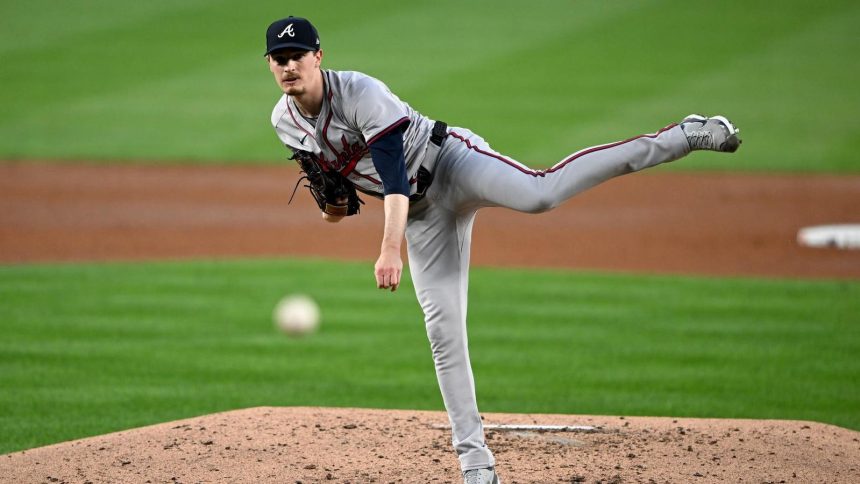The New York Yankees, undeterred by their unsuccessful pursuit of star outfielder Juan Soto, have embarked on a strategic roster overhaul, prioritizing pitching prowess and defensive solidity. Their approach, while aggressive, emphasizes shrewd decision-making rather than extravagant spending, as evidenced by their recent acquisitions and ongoing evaluations. The Yankees’ new direction signals a shift away from their traditional power-hitting identity towards a more balanced, fundamentally sound approach to the game.
The Yankees’ pitching staff has received a significant boost with the acquisition of left-handed ace Max Fried. His eight-year, $218 million contract, the most lucrative ever awarded to a left-handed starter, underscores the Yankees’ commitment to building a formidable rotation. Fried joins Gerrit Cole and Carlos Rodón to form a trio of aces, providing the Yankees with a formidable front end of their starting pitching staff. Further bolstering their pitching depth are promising young arms like Luis Gil, the 2024 AL Rookie of the Year, and reliable veterans like Clarke Schmidt and Marcus Stroman. Gil, in particular, represents a valuable asset, both for his current contributions and his long-term potential as a future ace. The Yankees’ investment in pitching reflects their understanding of its crucial role in achieving sustained success.
The Yankees’ shrewdness extends beyond starting pitching, as demonstrated by their acquisition of elite reliever Devin Williams from the Milwaukee Brewers. While Williams carries some injury risk due to past back issues, his talent and track record as a two-time All-Star and two-time NL Reliever of the Year Award winner make him a valuable addition to the bullpen. The Yankees’ willingness to take a calculated risk on Williams reflects their desire to assemble a dominant pitching staff from top to bottom. This acquisition, coupled with their investment in starting pitching, solidifies the Yankees’ commitment to building a pitching staff capable of shutting down opposing offenses.
Recognizing the importance of a strong defense, the Yankees are prioritizing improvements in their infield. Max Fried’s ground-ball-inducing pitching style necessitates a robust infield defense capable of converting those ground balls into outs. The Yankees are actively exploring options to upgrade their infield, focusing on players who excel defensively. While power-hitting first baseman Pete Alonso might be tempting, his defensive limitations make him an unlikely target. The Yankees’ focus on defensive proficiency demonstrates a commitment to building a well-rounded team capable of winning in multiple ways.
The Yankees face difficult decisions regarding free agents who received and rejected qualifying offers. While attractive options like third baseman Alex Bregman and first baseman Christian Walker are available, signing them would incur significant penalties, including the loss of valuable draft picks. Balancing the desire for immediate improvement with the long-term implications of forfeiting draft capital presents a complex challenge for the Yankees’ front office. This careful consideration of both short-term and long-term consequences reflects a prudent approach to roster construction.
Cody Bellinger, a versatile outfielder and left-handed hitter, has long been admired by the Yankees and seems a likely trade target this offseason. Bellinger’s defensive versatility and potential offensive upside make him an attractive option for the Yankees, who are seeking to improve both their outfield defense and their left-handed hitting. However, his sizeable contract presents a financial hurdle. The Yankees will need to negotiate a favorable deal with the Chicago Cubs, potentially involving the Cubs covering a portion of Bellinger’s remaining contract, to make this acquisition financially viable. The pursuit of Bellinger further exemplifies the Yankees’ strategic and multifaceted approach to roster improvement. They are seeking players who can contribute in multiple ways, bolstering their defense, adding left-handed hitting, and potentially providing power. The Yankees’ ability to navigate the complexities of trades, free agency, and qualifying offer penalties will be crucial to their success in building a championship-caliber team. Their current trajectory suggests a move towards a more balanced and sustainable model of success, prioritizing pitching, defense, and strategic acquisitions over a reliance on sheer offensive firepower. This shift in philosophy could usher in a new era of Yankees baseball, one characterized by shrewd decision-making and a commitment to building a well-rounded and fundamentally sound team.



